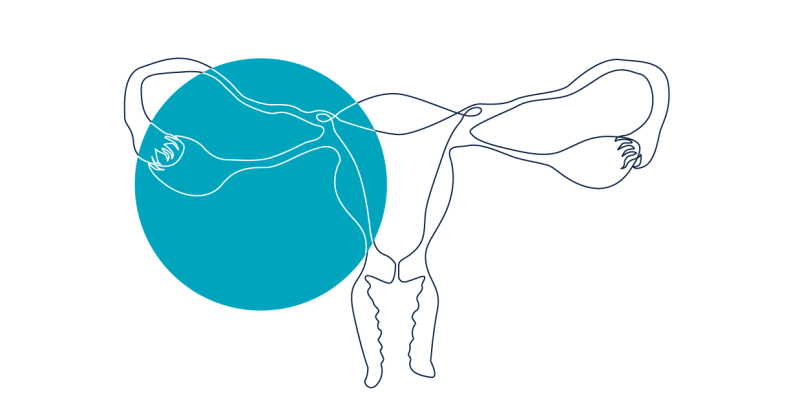Dr. Kerstin Gustafson and Dr. Colleen Dy
Feb 25, 2026
Menopause: Don’t sweat it: Part 2 – Therapies
As care providers, we should be ready to respond to our patients’ midlife concerns with accurate and evidence-based information. This article explores commonly prescribed preparations for managing vasomotor symptoms in menopause. read more...
Dr. Sarah McCorquodale & Dr. Trevor Corneil
Jan 28, 2026
Recognizing and responding to measles
Endemic measles has returned to BC and Canada, and in 2025 there were 414 cases reported in BC and 5,392 in Canada (confirmed and probable). As such, measles is now on my differential diagnosis for rash and respiratory illness. I implement appropriate infection control measures in my office to protect other patients and staff. read more...
Dr. Steve Wong
Dec 11, 2025
Letter from the editor
The end of the year offers a natural moment for reflection, gratitude, and looking ahead. I would like to once again thank everyone who makes This Changed My Practice possible. I'd also like to touch on AI. AI will likely be both one of the best and one of the most problematic tools we encounter in health care. AI tools will continue to improve, but I'd like to highlight the ongoing importance of Human Intelligence—trusted experts who provide context, judgement, and nuance. read more...
Dr. Vivian WL Tsang, Dr. Julius Elefante, and Dr. Paxton Bach
Nov 26, 2025
Navigating controversies and complexity in concurrent alcohol use, and mood and anxiety disorders management
The Canadian Research Initiative in Substance Matters (CRISM) recently published the Canadian clinical guidelines for the clinical management of high-risk drinking and alcohol use disorder. This article examines the guideline recommendations regarding the use of selective serotonin reuptake inhibitor (SSRI) antidepressants for adults and youth with alcohol use disorder. read more...
Harleen Chohan, Jenny Hong, SungEun Michelle Kim, Victor Leung and Colin Lee
Oct 22, 2025
The case for using 1 gram of Ceftriaxone for community-acquired infections in hospital
In alignment with the recommendations from the BC Provincial Antimicrobial Clinical Expert Committee (PACE), we now recommend using Ceftriaxone 1 gram IV every 24 hours as the initial dosing regimen for treating mild to moderate community-acquired pneumonia, urinary tract infections and skin and soft tissue infections in non-critically ill patients. read more...
Dr. David Wilson & Hilary Cullen
Sep 24, 2025
New BC Guideline on concussion/mild traumatic brain injury (mTBI)
Concussions/mTBIs aren’t just sports injuries, but falls, vehicle collisions and violence are also common causes. This article shares the new BC Guideline on concussion/mTBI, which emphasizes early assessment, active recovery and practical tools for primary care. read more...
Dr. Caroline Dance, Dr. Laila Drabkin, Dr. Andrew Howard, Dr. Joseph Tham
Aug 27, 2025
Somatic symptom disorders and functional neurological disorders
This article aims to provide a structured approach to somatic symptom disorder and functional neurological disorder presentations, with a hope of supporting clinical care, reducing stigma and improving clinician confidence. read more...
Dr. Heather Leitch
Jul 23, 2025
Hematology tips for primary care: Hemoglobin abnormalities
This article provides evidence-based answers to common questions hematologists receive about hemoglobin disorders. Through case examples, I explore best practices for iron repletion and highlight key indicators for when referral to hematology is required. read more...
Dr. Kelvin Lou & Dr. David M. Williscroft
Jun 25, 2025
Matters of the HEEART: How to discuss code status when stakes are high in acute care
Discussing code status is a critical part of the larger goals of care discussion, but code status discussions often happen in emotional and high-stake situations. Directly addressing the high levels of emotion in these situations can greatly enhance communication and decision making. The focus of this approach is on building a personal connection and fostering trust at each step. To address the time limitations in acute care, we have streamlined multiple communication tools into the acronym HEEART, and provided tips on word choice and helpful practices. read more...
Dr. Douglas Green
May 28, 2025
Diagnosis of anxiety conditions in primary care: Part 1
Studies indicate that anxiety conditions are often underdiagnosed and undertreated in primary care. The Ottawa Anxiety Algorithm has been designed to be evidence-based and practical, and contains guidance as to when and how to screen for and diagnose anxiety conditions, self-help resources that can be emailed to patients, links to community resources and treatment algorithms for the commonly used medications for these conditions. read more...
Dr. Ilona Hale
Apr 23, 2025
Environmental impacts of clinical practice: reducing unnecessary care
Until recently, I had never really considered that testing and treatments have an environmental cost. The burden of overuse is not trivial: up to 30% of all tests and treatments we order are unnecessary and an additional 10% are harmful to our patients. I have realized that if I really want to make a difference to my carbon footprint at work, reducing unnecessary care has a greater impact than recycling clinic waste or powering down my computer. read more...
Dr. Bonnie Sawatzky
Mar 27, 2025
Bringing the Patient’s Voice into Undergraduate Medical Research Education
Early in my academic career, my goal was to teach basic research skills like ethics, consenting and data collection and analysis. Students learning from patient participants was minimal. read more...

